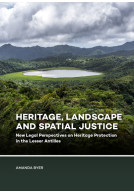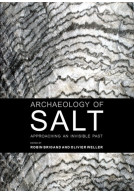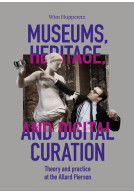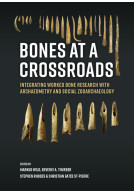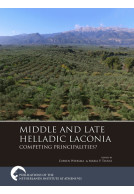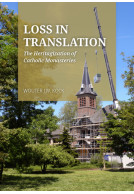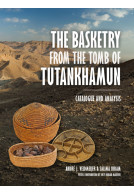Google Books previews are unavailable because you have chosen to turn off third party cookies for enhanced content. Visit our cookies page to review your cookie settings.
Engendering Objects (Paperback)
Imprint: Sidestone Press
Pages: 386
ISBN: 9789088901454
Published: 31st August 2013
Script Academic & Professional
Pages: 386
ISBN: 9789088901454
Published: 31st August 2013
Script Academic & Professional
Please note this book may be printed for your order so despatch times may be slightly longer than usual.
You'll be £50.00 closer to your next £10.00 credit when you purchase Engendering Objects. What's this?
+£4.99 UK Delivery or free UK delivery if order is over £40
(click here for international delivery rates)
Need a currency converter? Check XE.com for live rates
(click here for international delivery rates)
Need a currency converter? Check XE.com for live rates
Engendering objects explores social and cultural dynamics among Maisin people in Collingwood Bay (Papua New Guinea) through the lens of material culture. Focusing upon the visually stimulating decorated barkcloths that are used as male and female garments, gifts, and commodities, it explores the relationships between these cloths and Maisin people. The main question is how barkcloth, as an object made by women, engenders people’s identities, such as gender, personhood, clan and tribe, through its manufacturing and use.This book describes in detail how barkcloth (tapa) not only visualizes and expresses, but also materializes and defines, people’s multiple identities. By ‘following the object’ and how it is made and used in the performance of life-cycle rituals, in exchanges and in church festivities, this interaction between people and things, and how they are mutually constituted, becomes visible. How are women’s bodies and minds linked with the production of barkcloth? How do cloths produced by women both establish and contest clan identity? In what ways is the commodification of barkcloth related to gender dynamics? Barkcloth and its associated designs show how gender ideologies and the socio-material constructions of identity are performed and, as such, developed, established and contested.The narratives of both men and women reveal the ways in which barkcloth provides a link with the past and dreams for the future. The author argues that the cloths and their designs embody dynamics of Maisin culture and in particular of Maisin gender relations. In contributing to the current debates on the anthropology of ‘art’, this study offers an alternative way of understanding the significance of an object, like decorated barkcloth, in shaping and defining people’s identities within a local colonial and postcolonial setting of Papua New Guinea.“Engendering Objects is among the most comprehensive and innovative new works emerging from Melanesia examining the intimate connections between material culture, cultural identity and gendered personhood. Drawing upon extensive ethnographic fieldwork, archival research and examination of museum collections, Anna-Karina Hermkens traces the enduring yet innovative place of tapa (barkcloth) among the Maisin people. Written with warm compassion and immediacy, the book is a theoretically provocative, accessible and compelling portrait of changing life in a Papua New Guinean village society.” – John Barker, University of British Columbia“This book makes a most welcome contribution to the study of the materiality by showing how gender is performed in the sensuous terms of clothing, food, and the exchange of objects. Anna-Karina Hermkens accomplishes this with enviable care and intellectual resources, and a prose and ethnography that make the book a pleasure to read.” – David Morgan, Duke University“Anna-Karina Hermkens takes us to look at designs on bark cloth from Papua New Guinea through a magnifying glass. A fascinating perspective on material culture evolves. Beyond the art work we discover individuals – mainly women – painting their stories about who they and their beloved are as women and men, as traditional members of a clan, and also what they head for as strugglers in a new economy driven world.” – Christian Kaufmann, Honorary Research Associate, Sainsbury Reseach Unit, University of East Anglia, Norwich UK, former curator for Oceania at the Museum der Kulturen BaselAbout the author:Anna-Karina Hermkens obtained her PhD in Cultural Anthropology in 2005 from Radboud University Nijmegen. She is currently working as a postdoctoral research fellow at the ‘College of Asia and the Pacific’ of the Australian National University in Canberra Australia.
Customers who bought this title also bought...
Other titles in Sidestone Press...









